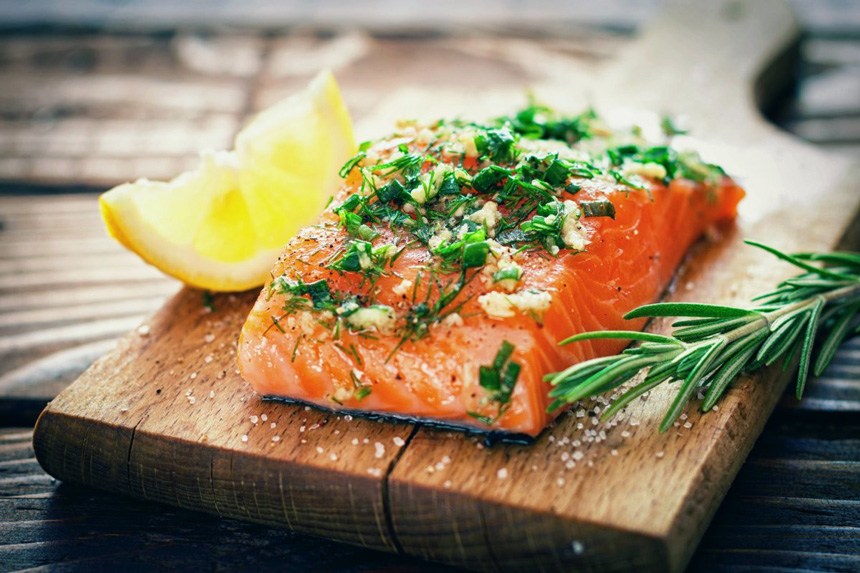Salmon

Salmon, a nutritional powerhouse, is not only delicious but also packed with several B vitamins. A 3.5-ounce serving of this fish offers a substantial amount of your daily needs for thiamine, riboflavin, niacin, pantothenic acid, pyridoxine, and an impressive 127% of your cobalamin requirements. What sets salmon apart is its low mercury content and high levels of omega-3 fatty acids, protein, and selenium, supporting heart and brain health. Including salmon in your diet not only boosts your B vitamin intake but also provides numerous other health benefits, making it a smart choice for a healthy diet.
In addition to its B vitamins, salmon’s omega-3 fatty acids are linked to reduced inflammation and lower blood pressure. [3]
Eggs

Eggs are a staple in many diets due to their versatility and nutritional profile, including a significant amount of biotin (B7). One large egg provides 35% of the DV for biotin, distributed between the yolk and white, and contains riboflavin, pantothenic acid, folate, and cobalamin. Eggs are a top source of biotin, which is crucial for hair, skin, and nail health. While raw egg whites contain avidin, a protein that can inhibit biotin absorption, cooking eggs deactivates avidin and ensures the biotin can be effectively absorbed.
Moreover, eggs are a convenient and affordable source of high-quality protein and other essential nutrients, making them an invaluable part of a balanced diet. They can be prepared in countless ways, from boiled and scrambled to incorporated into omelets and baked goods, ensuring they never become boring. Including eggs in your diet is a simple way to meet your daily B vitamin needs while enjoying a variety of delicious meals.





